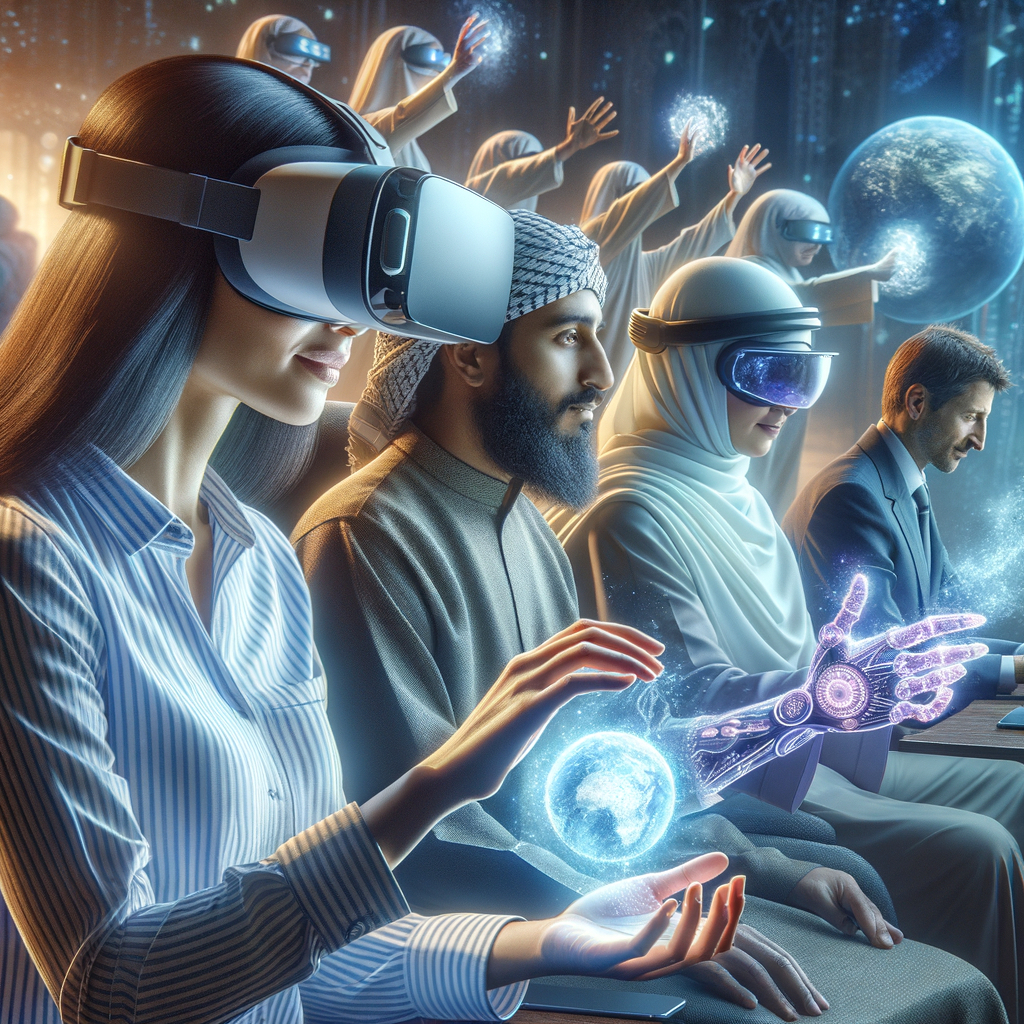Physical Address
304 North Cardinal St.
Dorchester Center, MA 02124
Physical Address
304 North Cardinal St.
Dorchester Center, MA 02124

The advent of virtual reality (VR) has revolutionised the entertainment industry, offering immersive experiences that were once only imagined in science fiction. From gaming to movies, music concerts to art exhibits, VR technology is reshaping our understanding and consumption of entertainment.
Perhaps the most evident impact of VR can be seen in the realm of video gaming. Traditional gaming confines players to a two-dimensional screen, limiting their interaction with the game environment. However, with VR, gamers are transported into a three-dimensional world where they become active participants rather than mere spectators.
Games such as ‘Beat Saber’, ‘Superhot VR’, and ‘Half-Life: Alyx’ have pushed the boundaries of interactive gameplay, providing fully immersive experiences that engage multiple senses. By wearing a VR headset and using handheld controllers, players can physically interact with their game environment – swinging a lightsaber, dodging bullets or exploring alien worlds – all from the comfort of their living room.
VR is also making waves in cinema and television. Filmmakers are experimenting with 360-degree cinematography and spatial audio to create immersive viewing experiences that extend beyond traditional flat screens. For instance, Alejandro G. Iñárritu’s ‘Carne y Arena’ used VR technology to place viewers directly into the narrative – an experience for which he was awarded a special Oscar.
In television too, broadcasters are utilising VR for live events such as sports matches or music festivals. Viewers can now don a headset and experience being ‘in’ the crowd or even on stage without leaving their homes – adding an entirely new dimension to remote viewing.
VR is not just changing how we consume music, but also how artists create and perform. Musicians can now use VR tools to compose music in a 3D space, while concerts can be streamed live in VR, allowing fans around the world to ‘attend’ shows virtually. The band Coldplay, for instance, held a concert in VR where fans could interact with the band and each other during the performance.
The art world has been quick to adopt VR technology as well. Artists are creating virtual reality artworks that allow viewers to step inside their creations and museums are offering virtual tours of their collections. This not only broadens access to art but also offers new ways for artists to express themselves.
While not traditionally considered entertainment, education and training sectors have seen significant benefits from VR technology. Simulations allow students or professionals to practice skills in a safe, controlled environment before applying them in real life scenarios – making learning more engaging and effective.
Social media platforms have begun incorporating VR into their interfaces as well. Facebook’s ‘Horizon’ is an example of a social VR platform where users can interact with others in a virtual environment – chatting, playing games or even holding meetings.
In conclusion,
The impact of virtual reality on entertainment is profound and wide-ranging. As technology continues to evolve, we can expect further integration of VR into our everyday lives – transforming how we play games, watch films, listen to music or even socialise online.
The potential applications of this immersive technology are vast – limited only by our imagination. As we continue exploring these possibilities, one thing remains certain: Virtual Reality is set to redefine our entertainment experiences, making them more immersive, interactive and personalised than ever before.